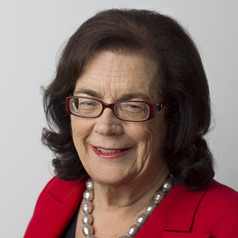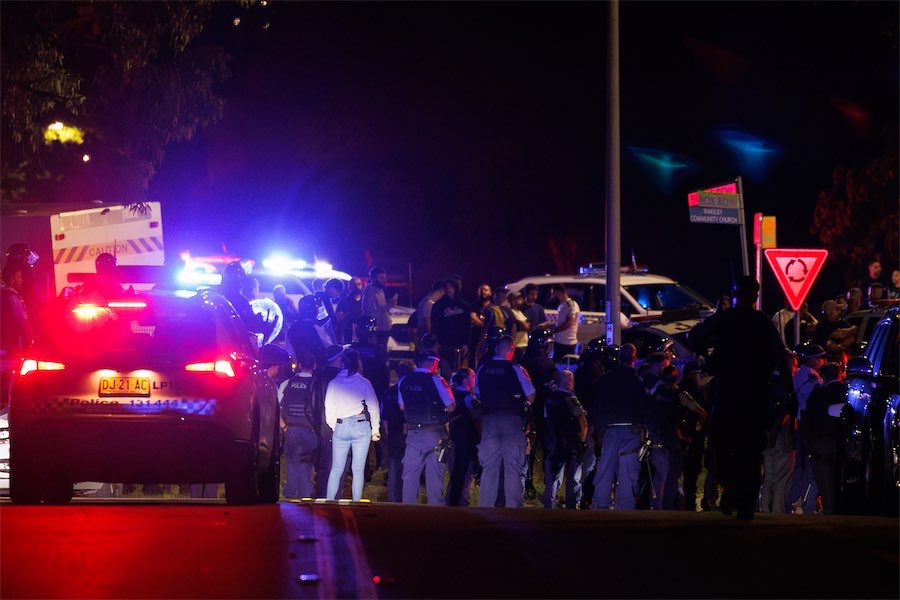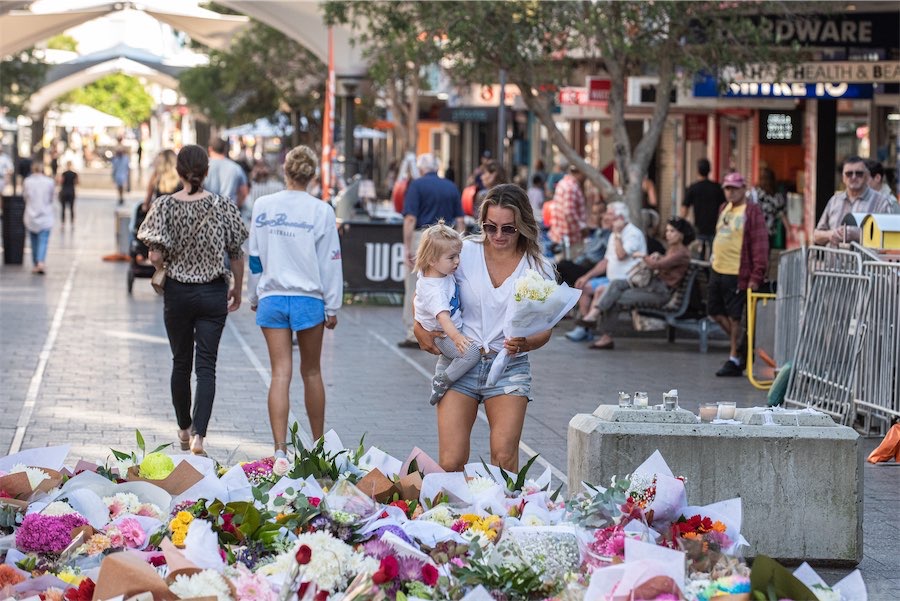THE most unfortunate aspect of the controversy surrounding ASIO chief Duncan Lewis is that it has given a free kick to those who want to sharpen a divisive debate about Australia’s refugee intake and Muslim immigrants generally.

Hanson asked: “Do you believe that the threat [of terrorism] is being brought in, possibly, by Middle Eastern refugees that are coming out to Australia?” Lewis’ reply was categoric: “I have absolutely no evidence to suggest there is a connection between refugees and terrorism”.
His answer lacked the nuance needed to make it 100% accurate. Critics could quickly point to the fact that those responsible for recent Australian incidents have been from a refugee background. Man Haron Monis, who in 2014 terrorised hostages in the Lindt Cafe, was a refugee; perpetrators of the Melbourne Endeavour Hills attack of 2014 and the Parramatta 2015 shooting were from refugee families.
This week Lewis, while continuing to reject the underlying proposition in Hanson’s question, tried to put precision into his response, telling the ABC: “The reason they are terrorists is not because they are refugees but because of the violent extremist interpretation of Sunni Islam that they have adopted”.
The government and the opposition formed a solid block of defence of Lewis.
But he had made himself vulnerable to an onslaught from the right commentariat and to criticism from former prime minister Tony Abbott.
While acknowledging ASIO and other agencies needed to maintain good links with the Muslim community, Abbott declared Lewis needed to “think again on this issue”, adding that “too many people pussyfoot around the fact that just about every terrorist incident of recent times involves someone killing in the name of Islam”.
Heading ASIO in the current environment borders on a nightmare job. The intelligence organisation struggles – with considerable success, it has foiled multiple plans – to stay ahead of the plotters, seeking to thwart them before they can do harm. Any sloppy work or other failures could end in disaster.
As part of this effort, ASIO must tap into the Muslim community in an effective way. The more co-operation it can get from within that community – and it has been receiving it, although not universally – the greater the chance it will elicit information to prevent attacks.
Equally important, early alerts will see ASIO better placed to help combat the radicalisation that leads to attacks.
More generally, there is the challenge of promoting general harmony in a multicultural society in edgy times that, for example, have just seen the Manchester atrocity and the coroner’s report on the Lindt siege, which generated intense debate about the handling of that incident.
Many on the right of the political spectrum stridently demand that “radical Islam” be discussed more. The flip side of that could be to stir discord and drive ordinary, law-abiding Muslims into their shell – which would be counter-productive, not least for ASIO.
The right also wants a more assimilationist approach taken towards Muslims.
In an article in Thursday’s Daily Telegraph Abbott wrote that we should “start insisting on one set of rules for all Australians” and condemned governments “giving ‘professional Muslims’ platforms (via official advisory bodies) that end up promoting difference and making identity politics worse”.
And in a direct crack at Malcolm Turnbull’s Ramadan gesture, he said: “I can understand the thinking behind the Iftar dinner at Kirribilli House last year but its practical impact was to give hardliners a status denied to integrated Muslims let alone leaders of other faiths”.
In the thrust of his comments this week, Abbott, while being careful, is positioning himself at a distance from the official line of the government as it deals with the fallout of Lewis’ assessment.
In relation to the refugee question, the issues should be recognised but a greater attempt made to have them put in proportion.
Yes, it is possible potential terrorists could slip in as part of the refugee program – just as some criminals found their way to Australia in the post-WW2 program. But we have strict security checks so the chances are minimised, while never completely eliminated.
And yes, taking Muslim refugees – and indeed Muslim non-refugee immigrants – does mean there is a cohort whose children can be targeted for Islamist radicalisation. But it would be reprehensible if this were used as a reason for Australia turning its back on these people, the overwhelming majority of whom become good citizens, as will their children.
In an uncertain world, we have to accept and deal with modest dangers for the sake of the wider good, which includes fulfilling the obligations of a rich and privileged country.
The government is trying to get the argument across. Deputy Prime Minister Barnaby Joyce said on Thursday that “99.99% of people who are refugees are not terrorists”. In his inimitable style Joyce rejected the refugee-terrorist linkage: “That’s like saying they are all blokes. So do you think there’s a link between testicles and terrorism?”
Even Immigration Minister Peter Dutton, often condemned by the left for his lack of heart, said: “If people want to criticise this government in relation to the refugee program or the immigration program, well criticise me. I’m the person in charge of this portfolio.” Of course if the refugee program became a serious target, so would Dutton, as the minister responsible.
The background to Hanson’s question to Lewis is her attitude to Muslims generally and Muslim immigration in particular. “We are in danger of being swamped by Muslims, who bear a culture and ideology that is incompatible with our own,” she said in her Senate maiden speech, in which she called for a halt to further Muslim immigration.
It is a mantra that the mainstream leaders, despite their hyper-partisanship on most issues, know they must stand united against if it is not to take a wider hold.
Michelle Grattan, Professorial Fellow, University of Canberra
This article was originally published on The Conversation. Read the original article.
Who can be trusted?
In a world of spin and confusion, there’s never been a more important time to support independent journalism in Canberra.
If you trust our work online and want to enforce the power of independent voices, I invite you to make a small contribution.
Every dollar of support is invested back into our journalism to help keep citynews.com.au strong and free.
Thank you,
Ian Meikle, editor




Leave a Reply